HVAC Companies Seacombe
Best HVAC Companies in Seacombe
Get up to 3 AC and Heating Services quotes for your project today! Compare profiles, reviews, accreditations, portfolio, etc... and choose the best deal.

Setaria Group Ltd
Croft Business Park, 8 Caldbeck Road, Bromborough, CH62 3PL, GBPumptec Services Group is a company dedicated to providing engineering excellence and reliability to its clients. They aim to keep their sites operational and compliant, with a focus on client satisfaction and maintaining site resilience. Pumptec Engineering Services specializes in delivering industrial and corporate plant asset maintenance, while Setaria Group offers 24/7 onsite technical support for HVAC, refrigeration, and mechanical systems nationwide, particularly in critical environments. The company boasts a nationwide service with locations in the North and South, emphasizing critical support, first-time fix solutions, and a team of skilled technicians and engineers. Pumptec Services Group is committed to quality standards, reflected in their numerous industry accreditations.
- Services
- Why Us?
- Accreditations
- Gallery
Get Quote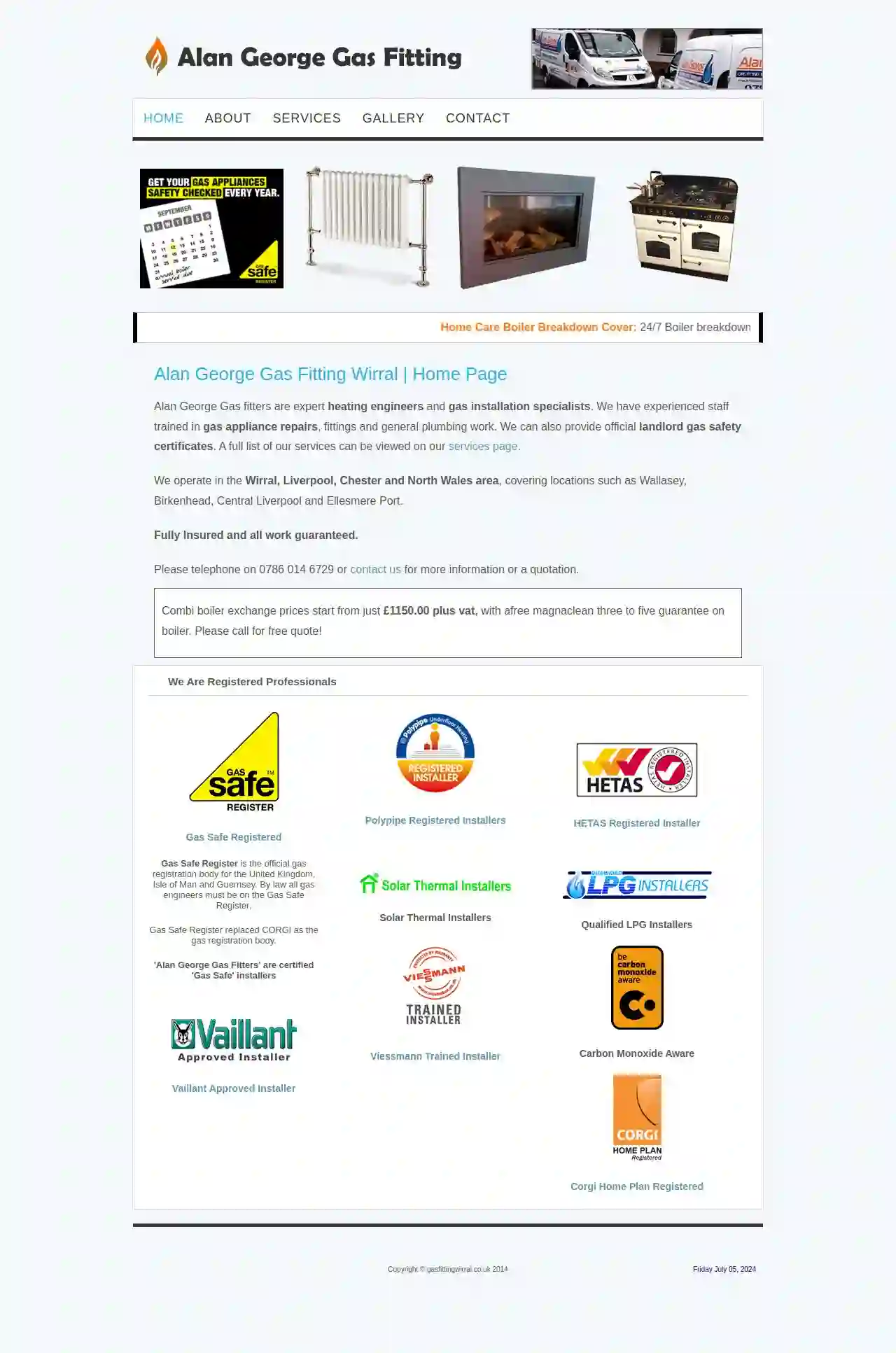
Alan George Gas Fitting
51 reviewsWallasey, 1 Buckingham Road, CH44 2EJ, GBAlan George Gas Fitters are expert heating engineers and gas installation specialists based in Wirral, serving the North West and North Wales. With over 30 years of experience, our fully qualified engineers provide a fast, reliable, and high-quality service, guaranteeing customer satisfaction. We offer a comprehensive range of services, including central heating installation and repairs, underfloor heating, gas appliance installations and repairs, LPG services, landlord gas safety certificates, solid fuel heating appliance installation and maintenance, general plumbing, unvented hot water systems, and solar thermal installations. We are committed to providing expert advice and free no-obligation quotes. We are proud to be registered professionals with Gas Safe Register, Vaillant Approved Installers, Polypipe Registered Installers, Solar Thermal Installers, Viessmann Trained Installers, HETAS Registered Installers, and Qualified LPG Installers. We are also Carbon Monoxide Aware and Corgi Home Plan Registered. Contact us today for a free quote or to discuss your heating and plumbing needs.
- Services
- Why Us?
- Accreditations
- Our Team
- Gallery
Get Quote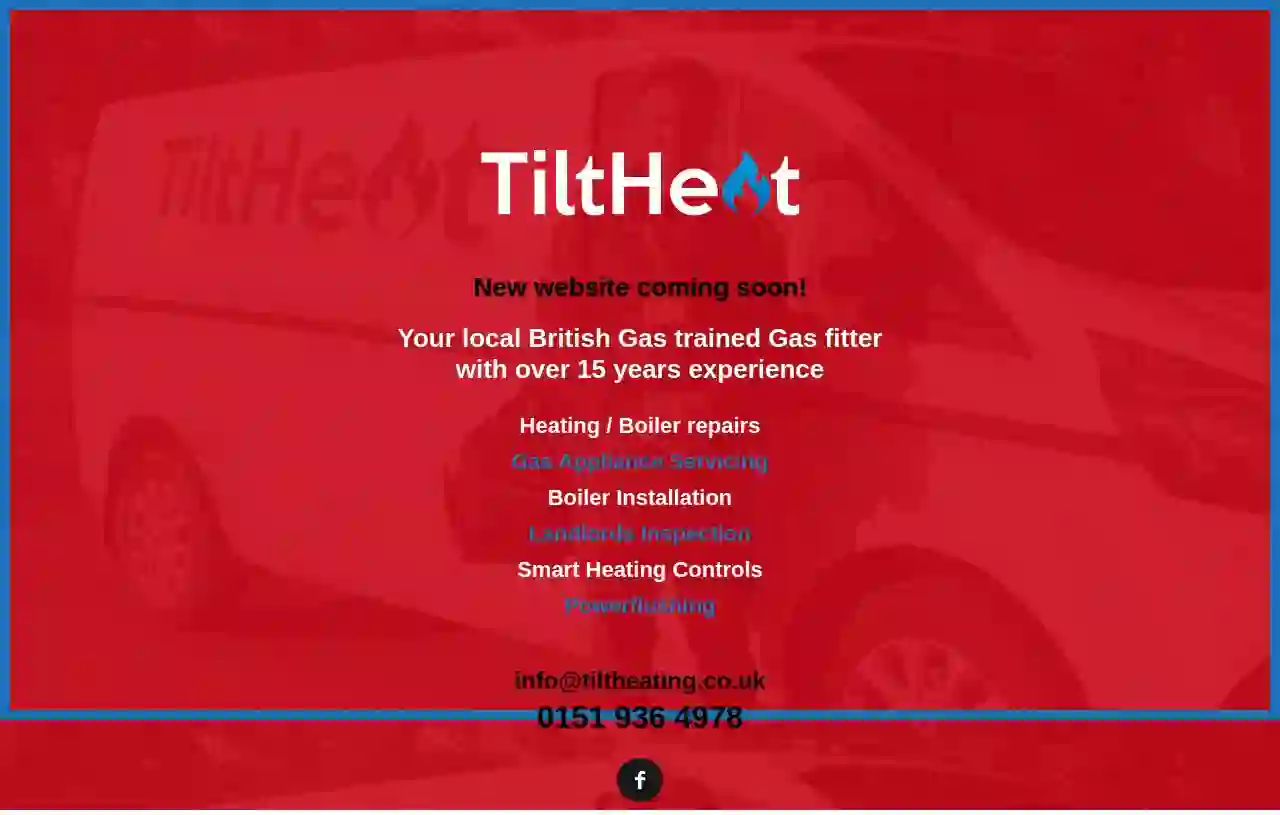
Tilt Heat Ltd
510 reviewsWallasey, GBYour local British Gas trained Gas fitter with over 15 years experience. We offer a range of services including Heating / Boiler repairs, Gas Appliance Servicing, Boiler Installation, Landlords Inspection, Smart Heating Controls, and Powerflushing.
- Services
- Why Us?
- Gallery
Get Quote
C D S Refrigeration Ltd
51 reviewsDock Road, Unit 13, Uveco Business Centre, Birkenhead, CH41 1FD, GBCDS GROUP is one of the leading HVAC & Refrigeration suppliers in the world. Whether it is Industrial or Marine, HVAC or Refrigeration requirements, we've got you covered! We Offer Competitive Pricing Customer Satisfaction Guaranteed ISO 9001:2015 Quality Assured Why Choose Us Our Services Include: Air Conditioning Bearings Compressors See All Services
- Services
- Why Us?
- Testimonials
- Gallery
Get Quote
Wirral Plumbers
4.625 reviewsBebington, Wirral, 78 St Andrews Road, CH63 9JQ, GBWirral Plumbers is a gas and plumbing services provider established in 1998 by Mike Williams. We offer a range of services including boiler installation, electric boiler installation, new boiler, boiler servicing, and repair in Wirral, Chester, and Liverpool. Our team of experienced and gas safe registered engineers provides a friendly, reliable, and professional service to homeowners, businesses, and landlords. We take pride in providing a quality service and are committed to providing the highest standards of service to all our customers.
- Services
- Why Us?
- Accreditations
- Our Team
- Testimonials
- Gallery
Get Quote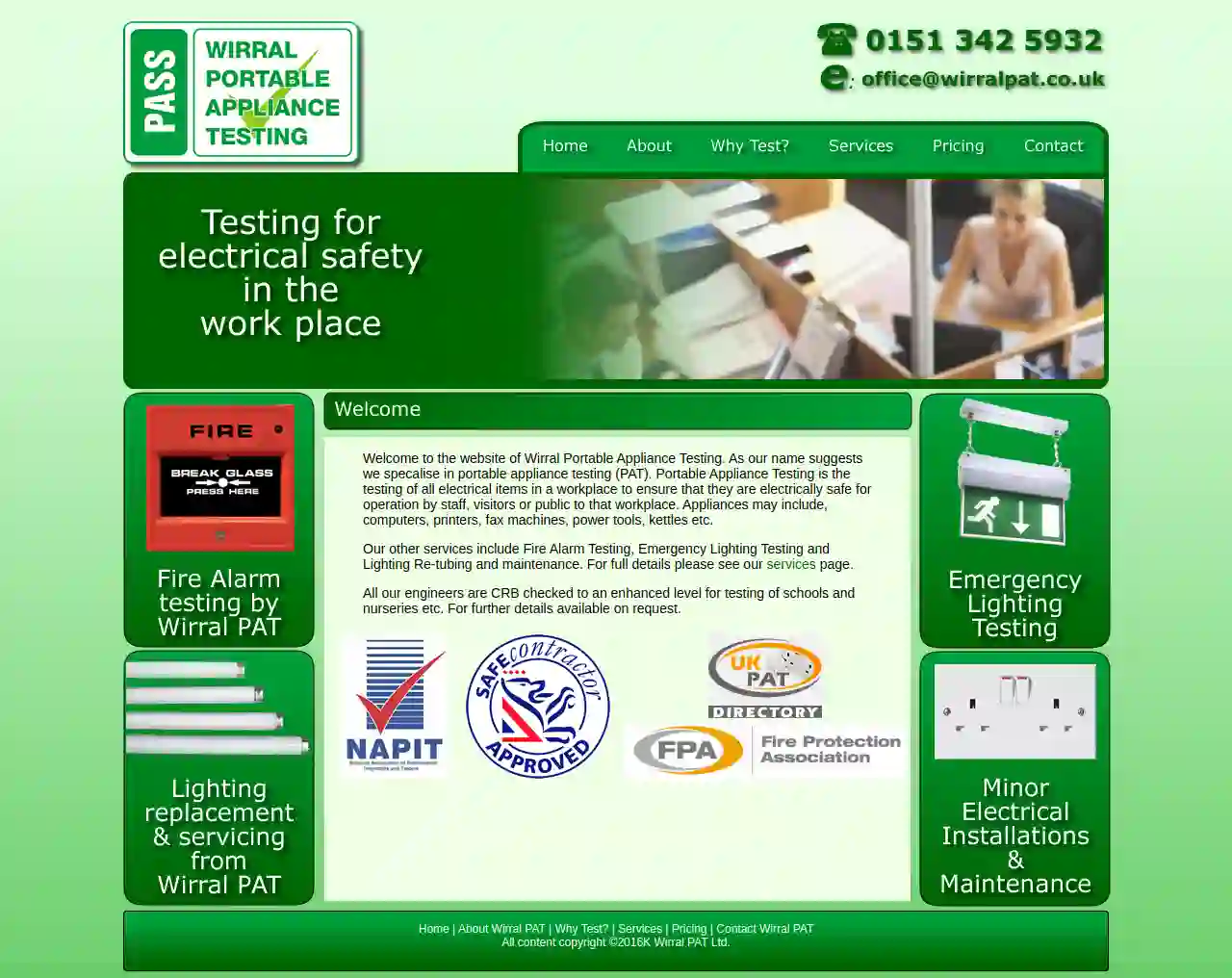
Wirral Electrical Group
51 reviewsWallasey, GBWelcome to the website of Wirral Portable Appliance Testing. As our name suggests we specialise in portable appliance testing (PAT). Portable Appliance Testing is the testing of all electrical items in a workplace to ensure that they are electrically safe for operation by staff, visitors or public to that workplace. Appliances may include, computers, printers, fax machines, power tools, kettles etc. Our other services include Fire Alarm Testing, Emergency Lighting Testing and Lighting Re-tubing and maintenance. For full details please see our services page. All our engineers are CRB checked to an enhanced level for testing of schools and nurseries etc. For further details available on request.
- Services
- Why Us?
- Our Team
- Gallery
Get Quote
Centreline Fires
5182 reviewsUnit 12, Wheatland Lane, Wallasey, CH44 7ER, GBWith more than 30 years of experience in the industry, we at Centreline Fires are proud of our leading fireplace showroom in Wirral. Providing quality products and installations throughout the North West and North Wales, our team of specialists offer a design, supply, and installation service to the highest standards. Focusing on customer satisfaction, we work closely with you to make sure we understand your individual requirements. We have an excellent reputation as a local, trusted, and honest fireplace installation company. Visit our showroom and see our extensive range of quality fireplace products.
- Services
- Why Us?
- Testimonials
- Gallery
Get Quote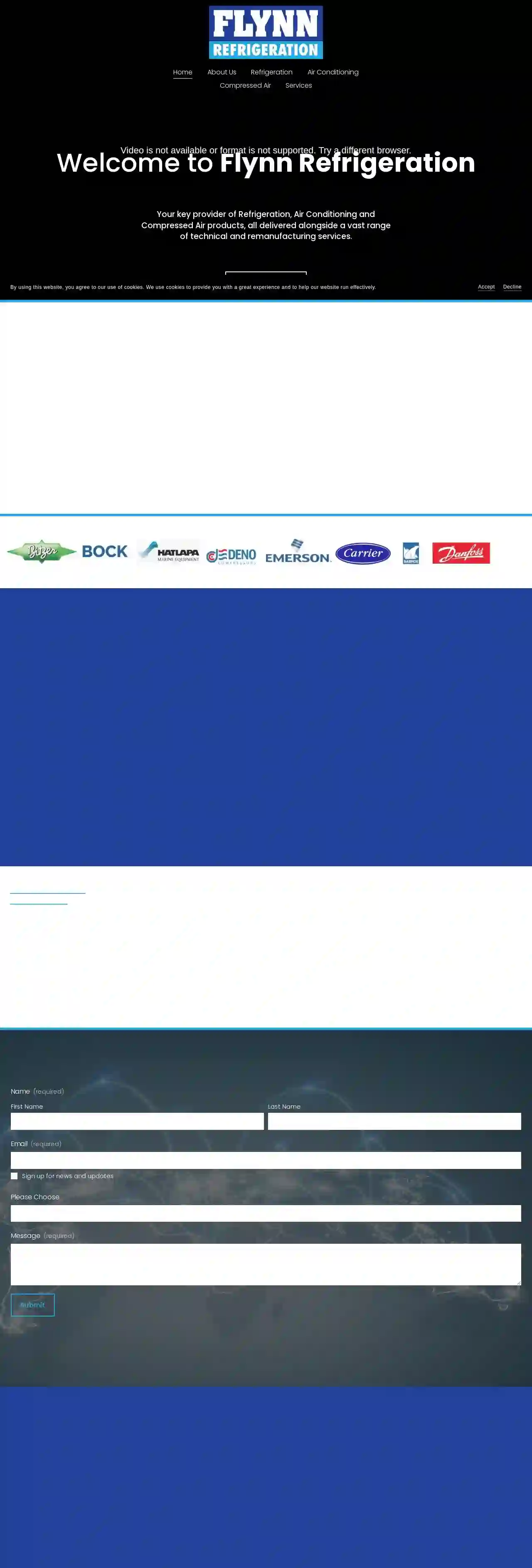
A.C. Flynn Refrigeration Ltd
32 reviewsUnit 7, West Float Industrial Estate, Millbrook Road, Wirral, CH41 1FL, GBWelcome to Flynn Refrigeration, your key provider of Refrigeration, Air Conditioning and Compressed Air products, all delivered alongside a vast range of technical and remanufacturing services. We’re proud to be a leading provider of marine and industrial supplies; offering high-quality Refrigeration and Air Conditioning products and services within the marine and industrial sector. We have more than 30 years’ dedicated experience delivering reliable and efficient solutions, and utilise our expansive global network and extensive product knowledge to meet the requirements of ship owners, fleet managers and trading companies within the maritime industry. Explore our extensive selection of Refrigeration and Air Conditioning products. From compressors to spares and tools, we have everything you need to keep your systems running smoothly.
- Services
- Why Us?
- Gallery
Get Quote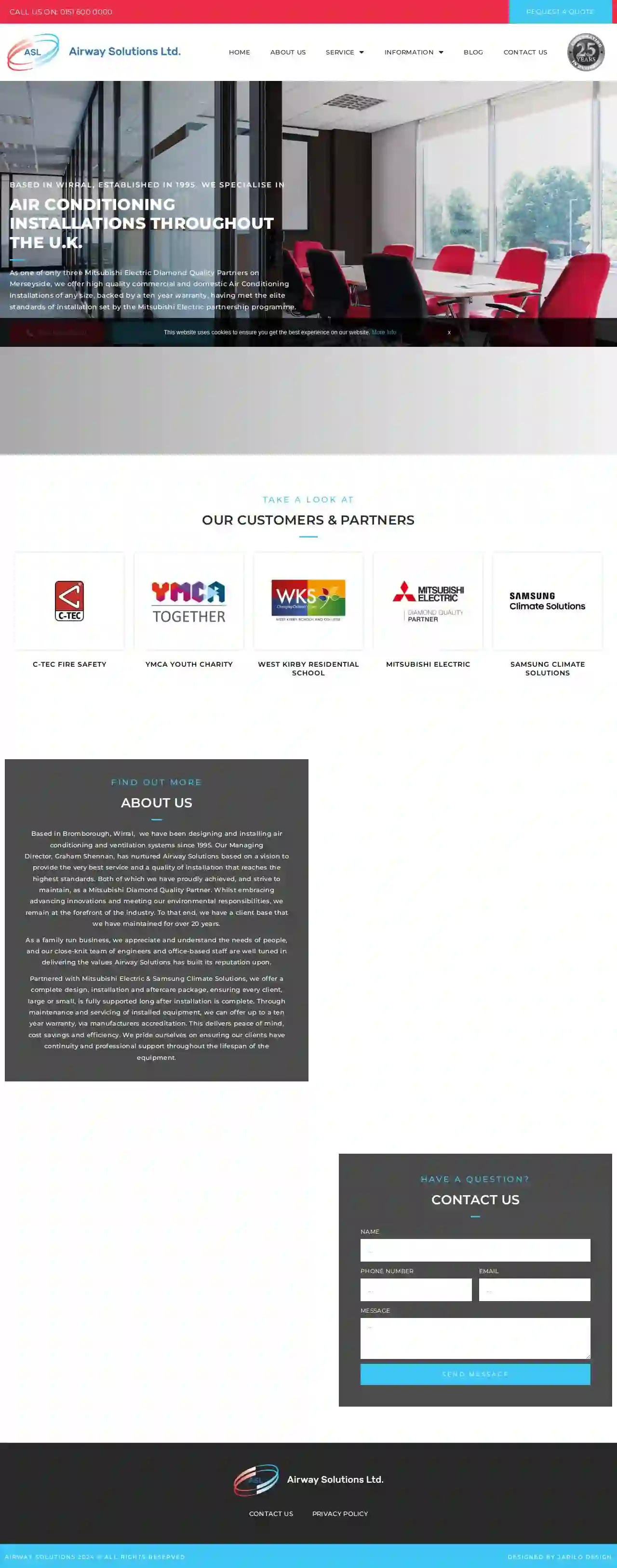
Airway Solutions Ltd
Wallasey, GBBased in Wirral, established in 1995. We specialise in air conditioning installations throughout the U.K. As one of only three Mitsubishi Electric Diamond Quality Partners on Merseyside, we offer high quality commercial and domestic Air Conditioning Installations of any size, backed by a ten year warranty, having met the elite standards of installation set by the Mitsubishi Electric partnership programme. Based in Bromborough, Wirral, we have been designing and installing air conditioning and ventilation systems since 1995. Our Managing Director, Graham Shennan, has nurtured Airway Solutions based on a vision to provide the very best service and a quality of installation that reaches the highest standards. Both of which we have proudly achieved, and strive to maintain, as a Mitsubishi Diamond Quality Partner. Whilst embracing advancing innovations and meeting our environmental responsibilities, we remain at the forefront of the industry. To that end, we have a client base that we have maintained for over 20 years. As a family run business, we appreciate and understand the needs of people, and our close-knit team of engineers and office-based staff are well tuned in delivering the values Airway Solutions has built its reputation upon. Partnered with Mitsubishi Electric & Samsung Climate Solutions, we offer a complete design, installation and aftercare package, ensuring every client, large or small, is fully supported long after installation is complete. Through maintenance and servicing of installed equipment, we can offer up to a ten year warranty, via manufacturers accreditation. This delivers peace of mind, cost savings and efficiency. We pride ourselves on ensuring our clients have continuity and professional support throughout the lifespan of the equipment.
- Services
- Why Us?
- Accreditations
- Our Team
- Gallery
Get Quote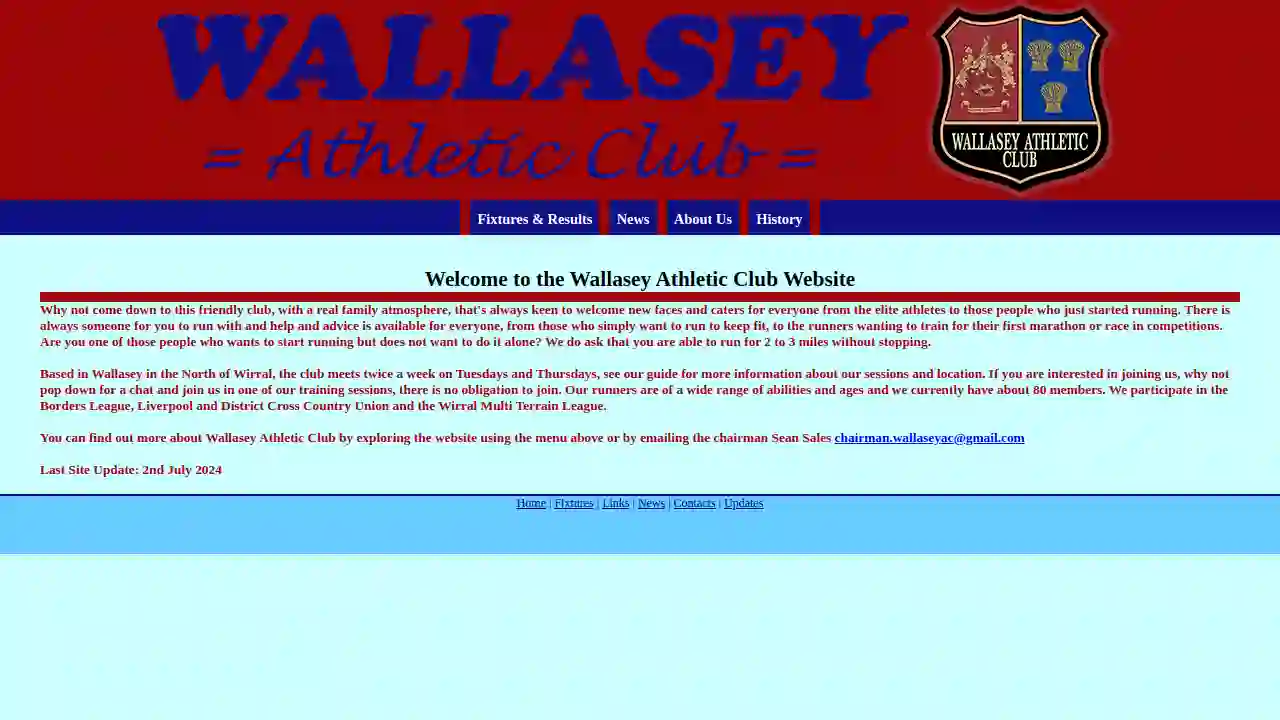
Wallasey Athletic Club
Wallasey, GBWelcome to the Wallasey Athletic Club Website. Why not come down to this friendly club, with a real family atmosphere, that's always keen to welcome new faces and caters for everyone from the elite athletes to those people who just started running. There is always someone for you to run with and help and advice is available for everyone, from those who simply want to run to keep fit, to the runners wanting to train for their first marathon or race in competitions. Are you one of those people who wants to start running but does not want to do it alone? We do ask that you are able to run for 2 to 3 miles without stopping. Based in Wallasey in the North of Wirral, the club meets twice a week on Tuesdays and Thursdays, see our guide for more information about our sessions and location. If you are interested in joining us, why not pop down for a chat and join us in one of our training sessions, there is no obligation to join. Our runners are of a wide range of abilities and ages and we currently have about 80 members. We participate in the Borders League, Liverpool and District Cross Country Union and the Wirral Multi Terrain League. You can find out more about Wallasey Athletic Club by exploring the website using the menu above or by emailing the chairman Sean Sales [email protected]. Last Site Update: 21st July 2024.
- Services
- Why Us?
- Gallery
Get Quote
Over 12,692+ HVAC Contractors on our directory
Our HVAC contractors operate in Seacombe & surroundings!
HVACCompaniesHub has curated and vetted Top HVAC Companies near Seacombe. Find a top & trustworthy business today.
Frequently Asked Questions About HVAC Companies
- AC not cooling: Refrigerant leaks, compressor issues, or thermostat problems.
- Furnace not heating: Pilot light or ignition control issues, blower motor problems, or clogged filters.
- Uneven temperatures: Ductwork leaks, inadequate insulation, or faulty thermostats.
- Poor air quality: Dirty air filters, mold growth in ductwork, or inadequate ventilation.
- Strange noises: Unusual sounds from the system can indicate a variety of problems with different components.
- High energy bills: Inefficient systems, ductwork leaks, or improper thermostat settings.
- Climate: Heat pumps are generally more efficient in moderate climates, while furnaces are better for colder regions.
- Budget: The upfront cost of different systems can vary significantly.
- Energy Efficiency Goals: Higher-efficiency systems are usually more expensive upfront but result in lower energy bills over time.
- Home Size and Layout: The square footage and layout of your home affect the system's capacity and ductwork requirements.
- Existing Ductwork: If you have existing ductwork, you'll need a system compatible with it.
- Regular Air Filter Replacement: Change or clean your HVAC system’s air filters regularly (every 1-3 months).
- Professional Air Duct Cleaning: Have your air ducts cleaned by professionals every few years to eliminate dust, mold, and other contaminants.
- Improve Ventilation: Ensure adequate ventilation in your home to bring in fresh air and exhaust stale air. Use exhaust fans in kitchens and bathrooms.
- Control Humidity Levels: Use a humidifier or dehumidifier to maintain optimal humidity levels and prevent mold growth.
- Clean Regularly: Dust and vacuum frequently to minimize airborne particles.
- Avoid Smoking Indoors: Smoking indoors significantly reduces IAQ.
- Use Natural Cleaning Products: Opt for natural cleaning products that don’t release harmful VOCs (volatile organic compounds).
- Monitor Indoor Air Quality: Consider using an indoor air quality monitor to track pollutant levels.
What are the most common HVAC problems?
Common HVAC problems include:
What is a ductless mini-split system?
What type of HVAC system is best for my home?
How can I improve my home's indoor air quality?
What are the most common HVAC problems?
Common HVAC problems include:
- AC not cooling: Refrigerant leaks, compressor issues, or thermostat problems.
- Furnace not heating: Pilot light or ignition control issues, blower motor problems, or clogged filters.
- Uneven temperatures: Ductwork leaks, inadequate insulation, or faulty thermostats.
- Poor air quality: Dirty air filters, mold growth in ductwork, or inadequate ventilation.
- Strange noises: Unusual sounds from the system can indicate a variety of problems with different components.
- High energy bills: Inefficient systems, ductwork leaks, or improper thermostat settings.
What is a ductless mini-split system?
What type of HVAC system is best for my home?
- Climate: Heat pumps are generally more efficient in moderate climates, while furnaces are better for colder regions.
- Budget: The upfront cost of different systems can vary significantly.
- Energy Efficiency Goals: Higher-efficiency systems are usually more expensive upfront but result in lower energy bills over time.
- Home Size and Layout: The square footage and layout of your home affect the system's capacity and ductwork requirements.
- Existing Ductwork: If you have existing ductwork, you'll need a system compatible with it.
How can I improve my home's indoor air quality?
- Regular Air Filter Replacement: Change or clean your HVAC system’s air filters regularly (every 1-3 months).
- Professional Air Duct Cleaning: Have your air ducts cleaned by professionals every few years to eliminate dust, mold, and other contaminants.
- Improve Ventilation: Ensure adequate ventilation in your home to bring in fresh air and exhaust stale air. Use exhaust fans in kitchens and bathrooms.
- Control Humidity Levels: Use a humidifier or dehumidifier to maintain optimal humidity levels and prevent mold growth.
- Clean Regularly: Dust and vacuum frequently to minimize airborne particles.
- Avoid Smoking Indoors: Smoking indoors significantly reduces IAQ.
- Use Natural Cleaning Products: Opt for natural cleaning products that don’t release harmful VOCs (volatile organic compounds).
- Monitor Indoor Air Quality: Consider using an indoor air quality monitor to track pollutant levels.